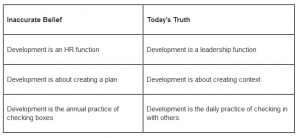
Stress comes with the territory for most CEOs. Being in the lead position of a business means a swirl of activity that can be difficult to navigate. When stress piles up, business leaders will have to find ways to deal with it so that they and their employees can avoid burnout.
Here are 10 ways for CEOs to cope with stress.
1. Accept it.
It may seem out-of-character for CEOs to admit when stress is overloading them. They can grin and bear it, but all the while there’s a loud traffic jam banging around in their brains. Finding a way to acknowledge what is happening is an important step, as is digging in to see where there are opportunities to improve. Tom Searcy writes about this in a story for inc.com.
“If you find yourself going through a period when your job as CEO looks more like burden than pleasure, you have to admit it,” he says. “That doesn’t mean you give up, but it may indicate that you need to make some changes. … Review your work and calendar for a few recent weeks. Make a list of your main activities, and note which tasks are giving you energy and which rob you of energy.”
2. Get organized.
Any successful professional should put a premium on this, but it goes well beyond keeping a clear desk and a tight calendar of meetings and appointments. Going deeper with financial planning can alleviate stress down the road. Sabrina Parsons, CEO of Palo Alto Software, writes about this kind of organization, using it as an example of “how to sleep better at night” in a story for inc.com.
“Having a grasp on your financials is the first step in minimizing stress,” she writes. “I create budgets and financial forecasts for every fiscal year using the previous fiscal year as a base and then adjusting for growth. I then use my forecast to budget my expenses and develop a clear picture of our cash on hand, what we’re expecting for revenue, and exactly how much we’ll have left after expenses. This reduces the ‘unknowns’ that are often the cause of increased stress and sleepless nights.”
3. Aim for calm.
When there is a seemingly never-ending list of tasks, the concept of clearing your head seems next to impossible. But even a brief break can help, and a longer one that involves a calming activity can be even better. Judith Ross explored this for the Harvard Business Review.
“When you’ve learned to recognize when your stress level is getting too high, you can take steps to control it before it takes control of you,” Ross wrote. “If you’ve been working furiously on a project or problem and one or more of your usual stress-response symptoms occurs, step away from your work. Engage in an activity that calmly engages you, such as yoga, knitting, or going for a walk. Visiting an art museum counts; visiting a Web site does not. Similarly, watching TV is out. But looking intently and meditatively at a painting in your home or office may be an effective way for you to dial down the stress.”
4. Have a weekend.
The notion of truly “unplugging” from the inner workings of a business may make some CEOs scoff. And, at times, they’re probably right — it’s not always possible to disconnect. But giving your brain and body a break can have great benefits. YoungAh Park, a researcher at Kansas State University, says checking work messages constantly can extend the stress to home life.
“If there are any unpleasant text messages or emails from work-related people — such as a boss, co-worker, clients, customers or contractors — you may be more likely to ruminate about work-related issues or worries,” Park said. “It will affect your feelings and behaviors at home, which could further influence people at home.”
5. Exercise — and not just a light walk.
Calming techniques and meditation could be the answer for stress relief and burnout prevention. But some might do well with something a little more active. In a story for entrepreneur.com, Steve Tobak recommends getting the tension out through “strenuous” exercise.
“When stress builds up to a sort of boiling point, that’s the only thing that works for a hyper-neurotic control freak like me,” he says. “Don’t forget that stress triggers your body’s fight-or-flight response. I don’t know about you, but I can barely keep from jumping out of my skin — let alone think or feel — with all that adrenaline and cortisol flooding my system. A 30-minute run returns my body to normal and calms me down so the other methods can do their magic.”
6. Evaluate crucial elements.
Making a routine of monitoring specific financial factors on a daily basis may help a business leader feel more comfortable away from the office. As Parsons writes in her inc.com piece, she watches direct sales, software-as-a-service sign-ups and cash amounts.
“I know these numbers so well that I am able to recognize normal decreases and increases and notice if an unfamiliar pattern forms,” she says. “Knowing where my business is at financially on any given day allows me to better focus on the bigger picture for where my company is headed long term. It also allows me to quickly make decisions about whether we can afford to add a marketing expense, go to a marketing event, or hire a new person.”
7. Identify smart changes.
When a CEO experiences an overload of stress, a natural reaction is to take stock of his or her routine and support staff. There may be an urge to make sweeping changes, just to shake things up. That’s when it’s time to take a step back and see what changes have a realistic shot at improvements and progress, as Searcy writes in his story for inc.com.
“I think that radical changes have the potential to backfire, creating some nasty and unintended consequences,” he says. “It’s better to find a few key adjustments to make — maybe in how you are spending your time, or which employees and customers you are interacting with. Your calendar will show you which people and activities are your personal energy vampires.”
8. Seek other points of view.
When stress is abundant and burnout is on the horizon, a business leader may not feel there is anyone internally to turn to. That itself can be a problem, as having support staff that can be leaned on is crucial. But colleagues in similar positions can offer a fresh point of view and share their own war stories, as Searcy writes in his inc.com piece.
“I am a big fan of having peers — preferably other CEOs and business owners — with whom you can commiserate and compare notes,” he says. “Go over your notes with one or more of those peers, preferably over a cup of coffee, and tell them what is going on. Often they can give you great perspective.”
9. Consider your surroundings.
In the face of business tension and all the problems that come from stress, office décor sounds downright trivial. But subtle changes may give a small boost, even if it’s not obvious or widely recognized. Nicole Marie Richardson writes about this in a story for inc.com, which features stress management expert Elizabeth Scott.
“A dark, disheveled office can ruin an employee’s mood the second he or she walks through the door,” Richardson writes. “Similarly, harsh overhead lighting and sterile cubicles with stark furniture can have the same effect. Making adjustments to lighting, temperature, noise level and other controllable factors can go a long way toward lightening the mood, says Scott. ‘I know it sounds New Age, but hiring a Feng Shui expert can bring in lots of positive energy,’ she says. If Feng Shui isn’t your cup of tea, the simple step of adding living plants to your environment cleans the air and makes the office feel more like home.”
10. Have a ‘real’ vacation.
As is the case with trying to have a “real” weekend, having a “real” vacation is essential for avoiding burnout and feeling rejuvenated at the office. Figuring out just how to do it is tricky, as tasks will have to be delegated and “call-only-if-it’s-urgent” messages delivered. Jason M. Lemkin, a partner at Storm Ventures and CEO of Echo Sign, talked about this with quora.com.
“… Once the business is real, sustaining — you need to take a real vacation,” he said. “Not just a trip where you email four hours a day. A real vacation. Honestly, it may be 4-5 years until you can do this, but once you can, it will help a lot.”
Business & Finance Articles on Business 2 Community(122)
Report Post







